

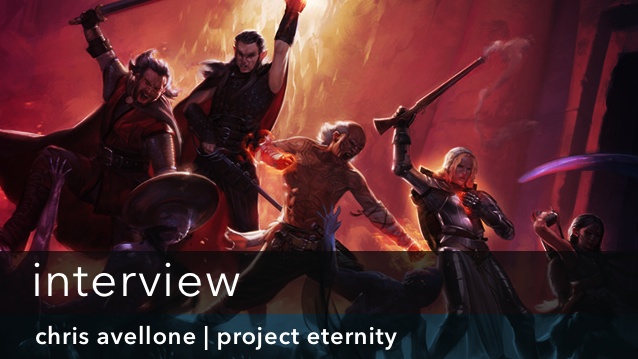
It's been two weeks since the success of Obsidian Entertainment's success with funding Project Eternity on Kickstarter. Garnering over $4 million in funding, the party-based, isometric RPG is set for release sometime in early 2014 for the PC, Mac, and Linux platforms.
Since the success of the Kickstarter, I finally had a chance to sit down with Chris Avellone to talk about Project Eternity. Chris Avellone is one of the game's lead designers and the narrative lead of titles such as Fallout: New Vegas and Alpha Protocol.
I've finally compiled the questions I wanted to ask you. Apologies for the lateness!
Do not ever apologize to me, Ian. Instead, you must offer tribute of blood and intestines to the time gods.
When you guys were putting together the Kickstarter pitch, did you ever think it would be as successful as it is?
No way. At least not for me... I am a born-again pessimist since age 13. Rob Nesler, our art director and wearer of fine hats and drinker of fine booze (which you can observe in our livestream video here http://www.twitch.tv/obsidian/b/335806140), however, was convinced we’d leave flames in the dirt from our screaming tire tracks. Still, because he’s apparently our very masculine (?) version of Cassandra, we didn’t heed his prophecies until the day of judgment. The players and backers knew better than us as well, so maybe we have 70,000 Cassandras.
But streuth (Australian-archaic for “truth,” which I promised I’d never use in conversation but said nothing about writing), it’s been a challenge. Bloody oath,* has it. Let me elaborate in this next question.
* I was also asked never to say this in conversation. I believe it’s effectively “hell yes?” An Australian can correct me if they’re reading this.
How are you guys coping with the $4M+ budget and the heightened media attention?
The budget means more hiring than we expected at first - no surprise considering it’s roughly 4x the funding goal and the stretch goal content additions. The good news is we already have a capable crew to draw from, not to mention volunteers who popped out of the woodwork. It doesn’t affect time frame of the project, and considering we have the logistic info from the Black Isle Infinity Engine games (resources, time frame per asset, etc. – this is important because of one of the questions & answers below), and the fact that a lot of us have done this type of game before, that helps nail down a lot of the X factors involved with the project.
The press aspects are minimal compared to the fan and player-based feedback, and while corresponding with the backers takes time, it’s time well spent for a lot of reasons – dealing with the fans and processing their feedback ends up being more energizing and it saves a lot of time discussing and setting/clarifying expectations and features people genuinely care about vs. crap they don’t, so we don’t need to waste any resources doing it. I prefer the fan interaction, personally, as it beats working in silence for months and rolling the dice at the end to see if the game resonates with the public.
You've stated in the past that you don't like romances in games—at least to the extent that they've been done in games thus far. Were you to implement a romance subplot in Project Eternity, what would it involve?
Not a big fan of romances. I did four in Alpha Protocol because Chris Parker, our project director, demanded it because he thinks romance apparently is easy, or MAYBE it’s because he wanted to be an asshole and give me tons of them to do because I LOVE them so much (although to be honest, I think he felt it was more in keeping with the spy genre to have so many romances, even if I did ask to downscope them). At least I got to do the “hatemance” version of most of them, which makes it a little more palatable.
Also, the only reason the romance bits in Mask of the Betrayer worked was because George Ziets helped me with them since he was able to describe what love is to me and explain how it works (I almost asked for a PowerPoint presentation). It seems like a messy, complicated process, not unlike a waterbirth. Don’t even get me started on the kissing aspects, which is revolting because people EAT with their mouths. Bleh.
So if I were to implement a romance subplot in Eternity - I wouldn’t. I’d examine interpersonal relationships from another angle and I wouldn’t confine it to love and romance. Maybe I’d explore it after a “loving” relationship crashed and burned, and one or both was killed in the aftermath enough for them to see if it had really been worth it spending the last few years of their physical existence chained to each other in a dance of human misery and/or a plateau of soul-killing compromise. Or maybe I’d explore a veteran’s love affair with his craft of murder and allowing souls to be freed to travel beyond their bleeding shell, or a Cipher’s obsession with plucking the emotions of deep-rooted souls to try and see what makes people attracted to each other beyond their baser instincts and discovers love... specifically, his love of manipulating others. You could build an entire dungeon and quest where he devotes himself to replicating facsimiles of love, reducer a Higher Love to a baser thing and using NPCs he encounters as puppets for his experimentations, turning something supposedly beautiful into something filthy, mechanical, but surrounded by blank-eyed soul-twisted drones echoing all the hollow Disney-like platitudes and fairy tale existence where everyone lives happily ever after.
Game writing and dialogue has typically been peripheral to the combat in games. In Planescape Torment, you had to wade through countless enemies regardless of your stats or the decisions you made. Are there any plans to incorporate dialogue options into the gameplay so the two aren't necessarily separate from each other?
I’d argue dialogue and dialogue exploration was the principal mechanic in Torment (not something I’m proud of, wish I’d pushed for more dungeons and other mechanics). Now, the dialogue is more along the lines of Fallout 2/BG2 density, and it’ll have the same feel, which is appropriate for an Infinity Engine game. We do plan to have dialogues that effect the density and agendas of battles (and allowing you to avoid a chunk of them at an undetermined % of frequency).
Are there non-violent or non-lethal options available to the player in Project Eternity?
Yep. You can use stealth and speech options to circumvent, prevent, and resolve tense situations, much like in the Fallout titles. While there won’t be a pacifist path in the title, there are times where you can accomplish objectives with more social/sneaky builds in inventive ways.
We also want to explore the idea of speech as a tool, not as a key. That may sound odd – we don’t want speech skills used as insta-wins when the option comes up, which doesn’t allow for much player contribution in the interaction beyond pressing the highlighted button. We experimented with this slightly in Fallout: New Vegas and the DLCs, although what we’d like to explore is more along the lines of what we did in Alpha Protocol: if you know enough about a target or subject, there may be different ways and approaches you want to use to create a desired result, which may involve pissing the listener off, flattering them, or intimidating them, for example, but none of these technically “win” the scenario, they either provide a broader context or more information on the target’s attitudes and motivations but it all depends on which way a player wants to push them.
A better example of a dialogue tool is the “Empathy” skill from Fallout 1 and 2. It was a perk that color-coded your responses to indicate whether the response would create a favorable, neutral, or hostile reaction. That didn’t mean that that option would lead to a good or bad result, however, and you had to decide what to do based on the clues the Empathy perk gave you (for example, you may not want to get in good with the leaders of Vault City in F2 because you feel slimy and dirty doing so, even if you’re being unfailingly polite – or you may want to make a mob boss angry and hostile so he has a heart attack right then and there).
A few RPGs, including the newly released Dishonored and the much older Deus Ex contain scripted elements while allowing for non-scripted or emergent behavior. Are there any plans to allow, or even create opportunities for the player to "play outside the bounds" of the scripted events in Project Eternity?
While we’ll have a core narrative, we would like to allow for player-driven stories through the game mechanics when possible, as those end up being far more personal and stronger to a player than anything we could script (a lesson I learned very early on in my gamemastering days all the way to the Van Buren play sessions we had at Black Isle for Fallout 3).
Aside from writing the stories in the games you've worked—and are working on, how else do you contribute to the games? Do you have any input on the game's design?
It depends on the title – at the most senior level of a project (if I’m in the role of Project Director), I have full input on all design aspects of a title with the exception of owner input and publisher input and often, in these instances, I’m weighing in on all aspects of the design and often doing core writing and core design (Fallout New Vegas DLCs).
When it comes to other projects, I often am in the role of an advisor, imparting suggestions for pipelines and cautionary tales based on the many, many mistakes I’ve made in the past. While giving advice and support is welcome, I prefer a specific role on at least one project in the studio since that allows me to get my hands dirty and contribute more directly (and it keeps me on the front lines so I don’t get rusty or unhappy).
For the Fallout New Vegas DLCs, for example and a few of the pitch projects, I’ve been Project Director and Narrative Lead, for New Vegas, I was a senior narrative designer for the most part, for Knights of the Old Republic II, I was Lead Designer and Narrative Lead, while on Alpha Protocol I was largely a narrative lead with some lead designer responsibilities (system design fell to the Project Director, Chris Parker, on Alpha Protocol in that instance, and he guided the Systems Lead with input and vision).
So to make a long answer even longer, the amount of input I have on design varies, and the goal is to allow people at their level to be empowered to have their vision imparted in the project – so, for example, if I’m not a Project Lead on the title, I defer to the Project Lead and the owners’ design direction and advise or give perspectives, critiques, etc. when asked. It’s taken me a while to figure out the best role to assume at the studio to be helpful, and it tends to change on a yearly basis and also change based on the project.
Other specific contributions I have are design producer duties (I’m obsessed with pipelines and hierarchies and making sure nothing gets lost, based on previous mistakes), writing and scripting characters and quests, and doing level design (such as for Wasteland 2). Wasteland 2 has been a breath of fresh air, since I haven’t had much opportunity to do level design since Knights of the Old Republic II and I love drawing maps and laying out area quests.
Besides your future work on Project Eternity and having already returned to Fallout, have you any other universes or settings you'd like to visit?
Sure. Wasteland 2 at inXile has already been an opportunity to return to one of my favorite franchises, so I can check that off the list (until Wasteland 3 - ::crosses fingers::). Other ones include: The Wire, Firefly, Ghost in the Shell, the Walking Dead (movie or comics), Chronotrigger, Torment (although that’s difficult for a variety of reasons), and Star Wars (I’ve always wanted to do Knights of the Old Republic III and finish the trilogy).
It's been officially disclosed that Obsidian plans to use Unity to develop Project Eternity. Is there a reason you've chosen to use Unity's development tools over other options?
It meets our needs, has a good deal of support, fits within our budget, and is user-friendly. I’ve been happy with it on Eternity and on Wasteland 2, and it works great, so… yeah, that’s pretty much it. I wish I had something more critique-y to say, but I don’t.
Given your vast experience with designing and developing RPGs, are there any lessons or experiences you'd take from those previous games to avoid in Project Eternity?
Awareness of scope. If you don’t know the scope, find out the specs for each part of the design and development toolbox (build a small level, a medium level, a large level, write a 15 node dialogue, a 50 node, a 150 node or more companion, build a weapon from start to finish, build a critter using the full range of animations, etc.). Then use a stopwatch to time each task until you know how long each one takes, and use that as a gauge of how much work you have in store – then seriously consider cutting it down to 50% or 75% of that amount to account for X factors during production.
Second, always ask “why the player should give a shit?” with every design decision, lore choice, and faction design. When fleshing out the world, keep in mind the player’s role as an agent of change, not your personal presentation. While you do want to put yourself and topics you’re passionate about in a title, that doesn’t mean crap if the player can’t interact with it in a way that empowers them.
Examine pacing and expectations. As an example, Torment was an extremely dialogue heavy game, and I do believe (I can hear pitchforks and torches being gathered) it could have benefited from more dungeon exploration, more combats, in addition to the dialogue depth it had. I tried to correct that when doing Targos in IWD2... I started off with a lot of fights and exploration rewards that immediately highlighted the threat the city was facing, then moved into dialogues (punctuated by a few fights), then a blast-off at the end.
Project Eternity has been described (by Forbes) as a 'roleplaying risotto' rather than a unique dish of its own. What are you doing to give the RPG its unique flavor and ensure that it's more than just a mash-up of other games?
Finally, what makes Project Eternity more than a simple nostalgia trip?
Combining these two into one answer since the answer’s one and the same: Considering they’re all elements of Infinity Engine games, it’s taking the best of each, and they aren’t mutually exclusive. We have learned a lot of role-playing lessons over the year when applied to our designers such as how to employ dialogue mechanics (see above), making sure we’re rewarding for every style of gameplay (some titles we’ve done previously at Black Isle were punishing to a player that pursued a certain path, a path that we allowed, but cut a good deal of content out as a result – for example, “slavers” in Fallout 2), the idea of taking fantasy tropes and re-imagining them from the more narrative-driven metaphysical aspects of the world (soul transference, the nature of gods and their agendas, the Cipher class).
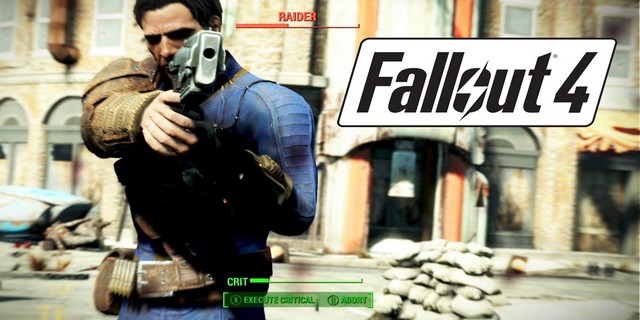

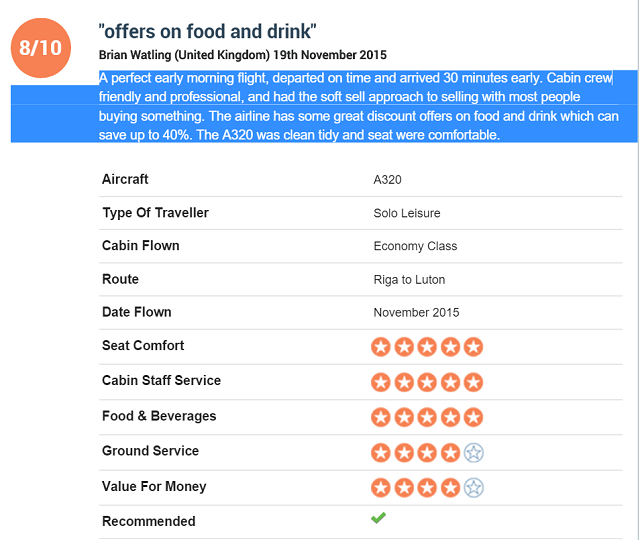
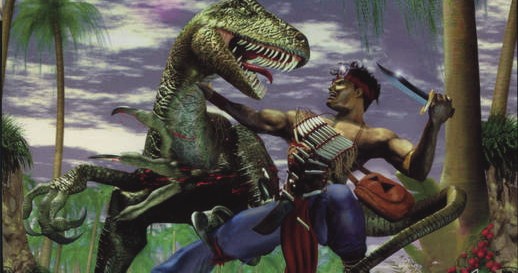
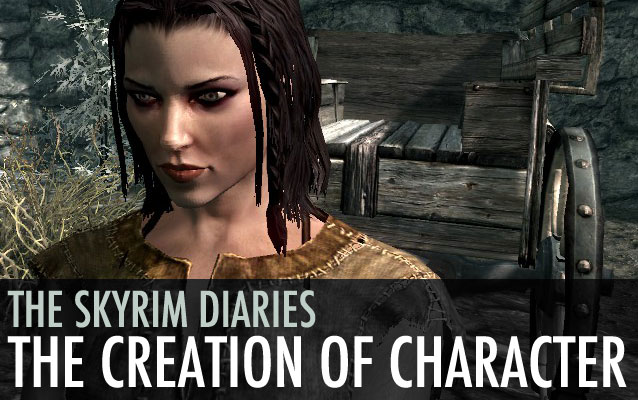 The Skyrim Diaries: The Creation of Character
The Skyrim Diaries: The Creation of Character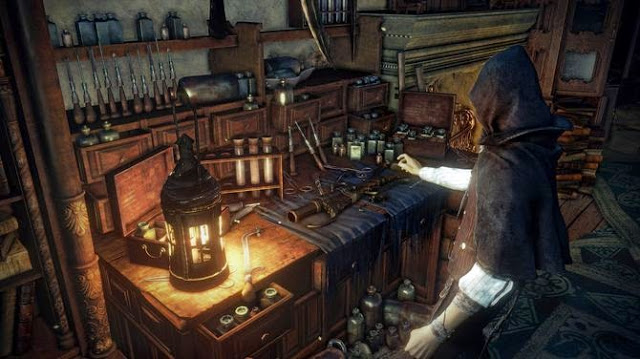 Bloodborne (PS4) Multiplayer mode tips
Bloodborne (PS4) Multiplayer mode tips The Morning Routines Of Some of the Most Successful People
The Morning Routines Of Some of the Most Successful People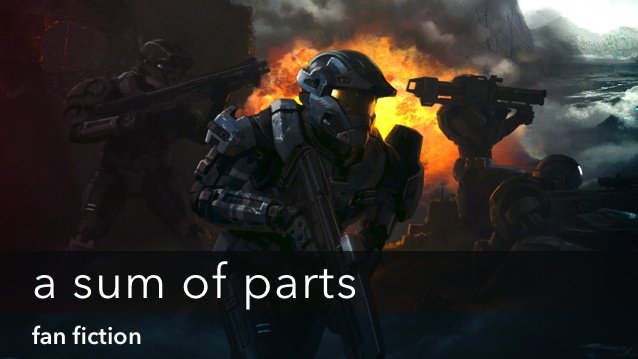 A Sum of Parts: Fan Fiction
A Sum of Parts: Fan Fiction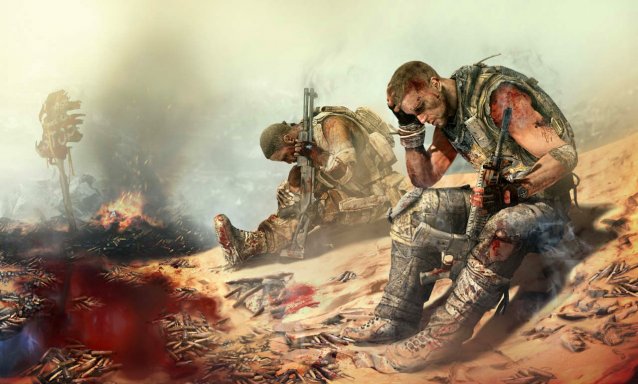 Top 10 Most Atrocious War Crimes in Video Games
Top 10 Most Atrocious War Crimes in Video Games